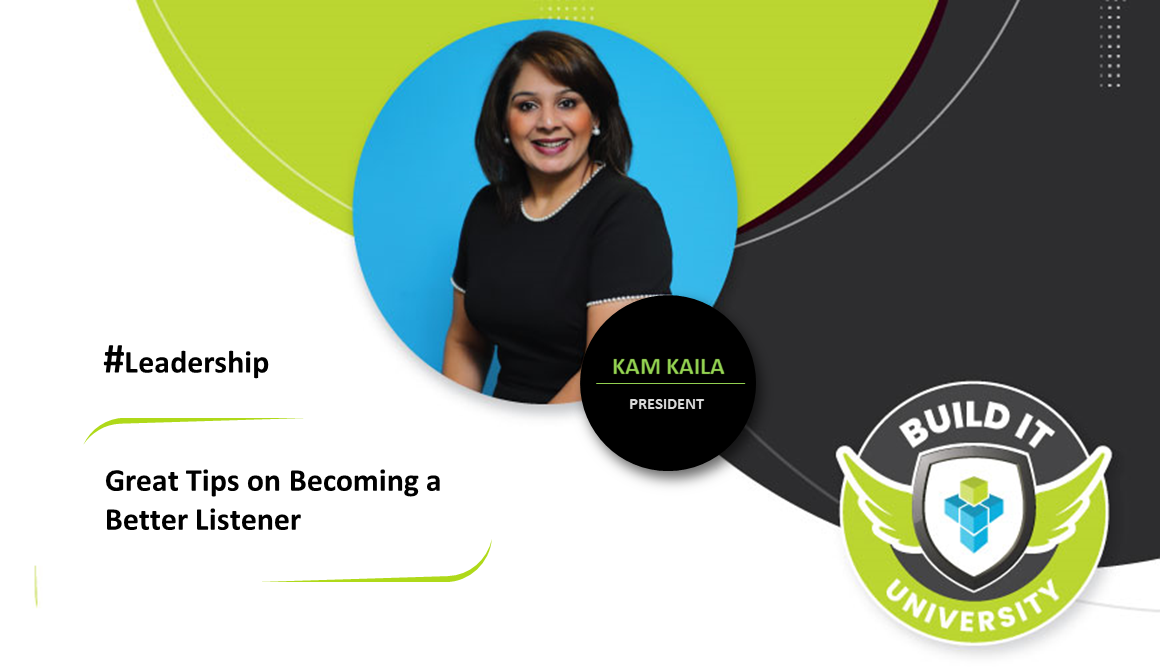Great Tips on Becoming a Better Listener
Some people are born good listeners. Others have to work on their listening skills – and this is the majority of us. Good, effective listening is difficult to do, especially in our society because we’re continually being bombarded with devices and other people fighting for our attention. But being an attentive listener is absolutely necessary for personal and professional growth. Why? Because even though we’re conditioned to believe that speaking is where the power is, the real power is in listening.
I learned this during an episode of “Sunny’s Silver Linings” podcast which featured Marcus Bond who covered many facets of the art of listening. Marcus is a senior consultant for The Collaborative Way, which offers an intentional and designed way of working together that harnesses the collective intelligence, imagination, and spirit of a company’s workforce.
Listening is a critical component of creating a healthy culture. And culture, as Marcus noted, “affects every aspect of the business because it’s a big part of how things get done.”
Communication is the number one element that defines a culture and is the primary medium we use to get our work done. True, effective communication, he said, is a collaboration of the individuals involved. One of its tenets he preaches is “listening generously”. That is, give the other individual your full attention. But, as I said earlier, that’s tough to do.
So here are some challenges you might face and great tips on how to overcome them:
Distracted listening: After about five minutes into a conversation, your mind starts to wander and you begin thinking about something other than what the other individual is saying. Or you begin engaging with documents or doing something else while you’re allegedly listening.
Solution: Build your listening muscles. Notice when your mind is “checking out” and “check back in” or pay attention. Don’t multitask because that will take away much of your attention on what is being said to you. Train your mind to focus on what the other individual is really saying. If you missed something, politely say, “Can you say that again?” Then you must really try to understand what the other person is trying to communicate to you. What is their intent?
Responding immediately: Many of us don’t let the other person finish and we want to jump right in with a reply because we believe – sometimes wrongly – that we know what the other person is going to say. This immediately means that you’re not truly listening to this person.
Solution: Pause after someone finishes speaking. It may seem slightly awkward initially but absorb what has been communicated and then respond. Also, repeat or summarize what the other person said so that they know you heard them and you heard them correctly.
Employing “filters”: These are the perceptions we have while another person is speaking. This includes judgement filters (agreeing or disagreeing with the other person before they finish), personal filters (having or forming a bias towards the other person, such as “This individual is a rambler” or “I never liked this person.”), and the “I’m too busy” filter, which is labelling the individual as unimportant to listen to or that the topic isn’t important to you – even before the other person has fully expressed themselves.
Solution: Eliminate that default judging and listen with a curiosity and sincere intention to learn from that individual – no matter who they are. They might actually possess that one missing piece of a puzzle that has hindered you or your business from growing.
Once everyone improves their listening habits, your culture will begin to change for the better. Look, you’re not expected to listen 100 percent during all your conversations, like during daily social chatter. But when you have significant conversations that have consequences – like topics pertaining to your business or someone’s personal issue – then this is when you must employ your best listening skills.
The Benefits
If you and all of your team members become effective listeners, the benefits are amazing:
- You’ll grow closer to each other
- You’ll be more understanding and appreciative of each other
- You’ll be able to confidently go to each other and have productive conversations
- You’ll all be moving forward together
Now that’s a great culture to work in. Click here to listen to the full podcast and get more details on how to be a more effective listener.

